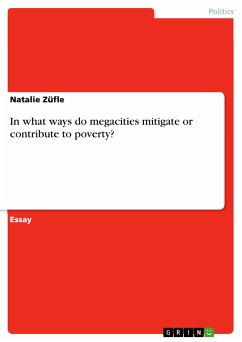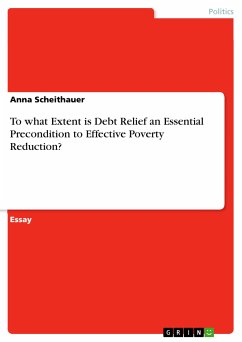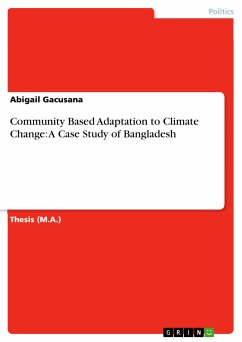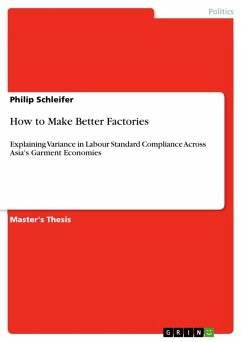Essay from the year 2008 in the subject Politics - Topic: Development Politics, grade: 1,3, Free University of Berlin (Center for Global Politics), course: Megacities, language: English, abstract: Moreover, large cities attract investment, which in turn creates new jobs, even in the low-level-sector. And additionally, the informal sector contributes a good share of jobs at low costs, in particular for the masses of poorly skilled people in the lower class. This sector distinguishes itself as dynamic and flexible with a high potential for those that can bring in new ideas. Last but not least it also "provides a safety net in countries that lack basic welfare services", because streets offer a possibility to make social contacts (Clark 2003, p. 116). Furthermore, local governments often enact regulations and work out other measures in order to meet the urban challenges of poverty (among them so called "pro-poor" social and economic policies in terms of supporting small-scale enterprises through credit and land provision, see Population Information Program 2002, p. 17). Often, NGOs and other international institutions support them in providing health care, improving sanitation and water supply, or public transport etc. Average living standards in large urban areas are generally better, but often not for the cities' poorest. Nevertheless, education or health care can be provided easier and more effective than in the countryside due to a better availability of hospitals and doctors per capita (see Cities Alliance, p. 1). More births take place in hospitals, and infant mortality as well as death rates among elder people are lower than in the countryside (Clark 2003, p. 128).
Dieser Download kann aus rechtlichen Gründen nur mit Rechnungsadresse in A, B, BG, CY, CZ, D, DK, EW, E, FIN, F, GR, HR, H, IRL, I, LT, L, LR, M, NL, PL, P, R, S, SLO, SK ausgeliefert werden.









